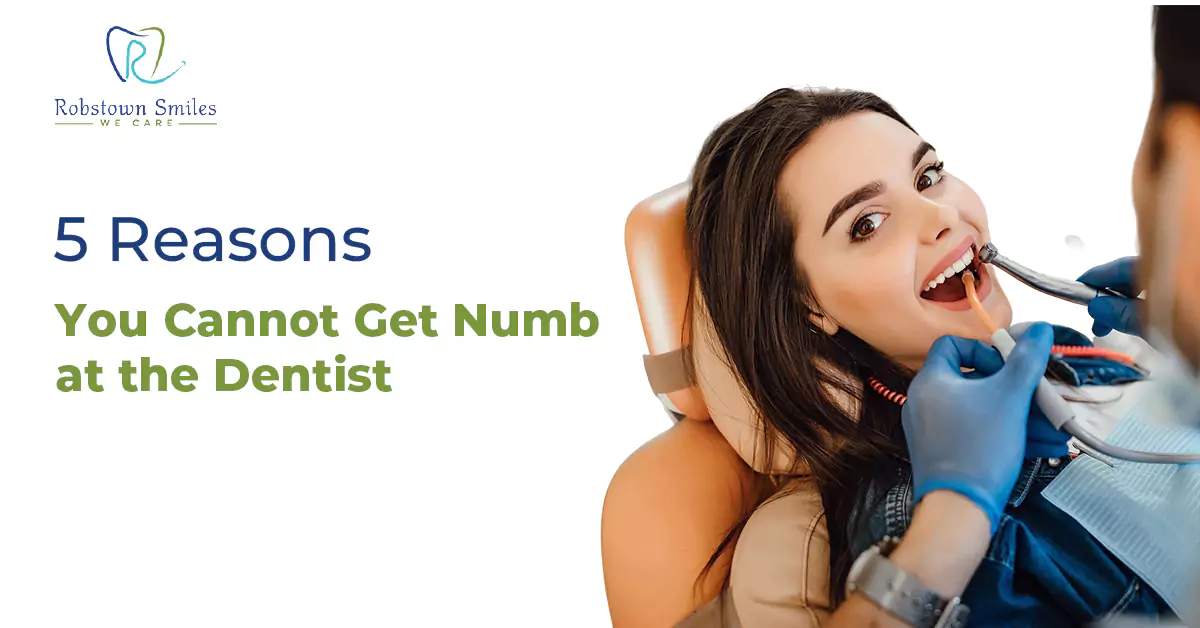Dentistry has come a long way in the direction of more comfortable treatments. With the availability of recent local anesthesia, most treatments can be carried out with little or no. However, in those who have sat in the dental chair and still feel pain, this can be disturbing and a little disconcerting. If you have sat in the dental chair and still have pain, knowing the reason can help you and your dentist come to the right remedy. Here are the top five reasons anesthesia may not have the desired effect.
5 Common Reasons You May Not Get Numb
Fast Metabolism
If the numbness doesn’t last long or doesn’t come on at all, your metabolism may be the culprit. Other people’s bodies metabolize medication quickly, so the numbing effect wears off sooner. Other lifestyle routines, such as consuming a lot of coffee or engaging in vigorous exercise prior to the appointment, can move the process along even faster. Reducing stimulants beforehand may keep you numb for a longer period of time.
Specialized Anatomy
Every mouth is different. Sometimes the nerves do not follow the regular courses on the charts of the teeth. That makes it harder for the dentist to place the anesthesia in the right spot. The bottom jaw can pose special problems because the main nerve can split in strange ways. Your dentist may have to use special methods or use extra injections in order for you to become totally numb.
Anxiety and Adrenaline
It’s normal to feel anxious at the dentist, but excessive fear can prevent anesthesia from working properly. When you’re anxious, your body produces adrenaline, which can prevent the numbing effect from taking place. Adrenaline closes up the blood vessels, preventing the anesthetic from getting to the nerve. If you tend to feel anxious in the dentist’s chair, tell your dentist about it. They can recommend relaxation methods for you or light sedation so the experience can remain relaxed and results can be improved upon.
Previous Dental Work
If you’ve had significant dental work in the past, your body may have become used to some of the drugs in anesthesia. This can lead to the necessity of a bigger dose or of a different drug in order to receive the same result. Your genes may also become a factor and lead to people being naturally less responsive to some drugs. Your dentist may adjust the plan in such situations to ensure maximum success.
Oral pH and Vitamin C
What you consume or drink prior to your appointment can come into play. A large dose of vitamin C, in the form of supplements or citrus juice, can alter the pH in your mouth and decrease the effectiveness of the anesthesia. Not consuming large quantities of vitamin C prior to treatment can prevent this effect. Surprisingly, consuming vitamin C after treatment can speed up the wear-off of the numbness.
Conclusion
Not getting numb at the dentist can be stressful, but it’s usually something that can be fixed once you know the cause. At Robstown Smiles, we take the time to understand your needs and use techniques that help you feel comfortable every step of the way. Schedule your appointment today and experience truly pain free dental care.

